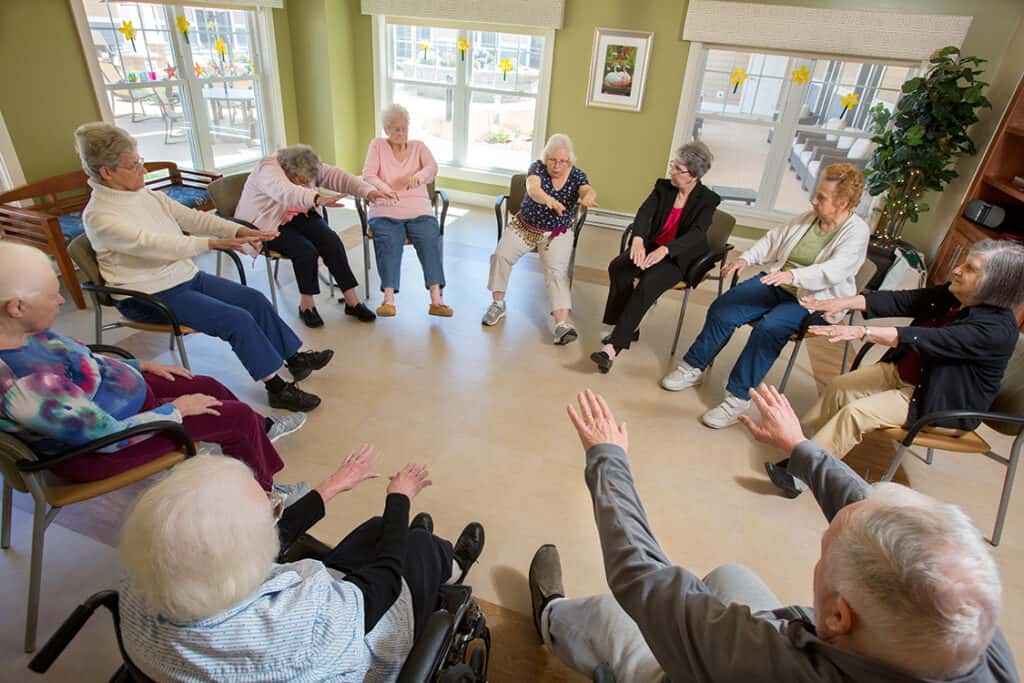Discover the reasons of Assisted Living as a senior care option.
Discover the reasons of Assisted Living as a senior care option.
Blog Article
Helped Living: a Compassionate Atmosphere for Seniors With Memory Challenges
Assisted living centers significantly function as caring atmospheres tailored to the unique demands of elders coming to grips with memory difficulties. By offering individualized treatment and structured routines, these communities not just enhance cognitive function but additionally foster psychological connections, decreasing seclusion amongst locals. Specialized approaches, such as songs treatment and reminiscence strategies, are used by qualified staff to promote deeper communication. However, the performance of these interventions frequently pivots on the participation of families in the treatment process, prompting a more detailed evaluation of just how this collective effort affects outcomes for both homeowners and liked ones.
Comprehending Memory Obstacles
Understanding memory difficulties is essential for offering efficient treatment to seniors dealing with cognitive decrease. Memory problems, which can manifest as forgetfulness, confusion, or problem remembering current events, are frequently signs of problems such as Alzheimer's condition or other forms of dementia. These challenges can substantially influence an elderly's capacity to perform daily tasks, preserve social connections, and handle individual safety and security.
Identifying the various stages of cognitive decline is essential for caregivers and health care experts. Early-stage memory loss may include moderate forgetfulness, while mid-stage decline can result in much more noticable disorientation and confusion. In late-stage dementia, individuals may lose the ability to communicate effectively, requiring comprehensive support and understanding from caretakers.
In addition, memory obstacles can stimulate an array of psychological actions, including disappointment, stress and anxiety, and anxiety. This necessitates a thoughtful approach to care that prioritizes the psychological well-being of the individual. Understanding the intricacies of memory obstacles allows caregivers to create customized methods that improve communication, promote involvement, and supply a sense of safety. Inevitably, a deep understanding of these obstacles is essential to delivering thoughtful and efficient look after elders encountering cognitive decline.
Advantages of Assisted Living
Assisted living deals various advantages for senior citizens with memory challenges, giving a helpful setting that fosters independence while making sure security and care. Among the main advantages is the day-and-night guidance and support readily available, which assists minimize dangers linked with memory-related problems. Memory Care. This constant support permits senior citizens to take part in daily tasks without the fear of mishaps or complication
Additionally, helped living centers typically give structured regimens that can boost cognitive function and security. These regimens help citizens really feel more safe and lower anxiety, as they understand what to anticipate each day. Social interaction is one more substantial benefit, as these atmospheres motivate links among locals, advertising psychological health and reducing feelings of seclusion.
In addition, assisted living staff are trained to acknowledge the one-of-a-kind demands of elders with memory challenges, allowing for personalized treatment plans that deal with specific preferences and demands. This customized strategy not just boosts the quality of care but likewise equips senior citizens to preserve a feeling of freedom. Overall, assisted living works as a thoughtful option, stabilizing the requirement for assistance with the wish for self-reliance in the lives of senior citizens dealing with memory difficulties.
Specialized Treatment Approaches
Executing specialized care strategies is necessary for successfully supporting elders with memory difficulties. One essential approach is person-centered treatment, which highlights the relevance of comprehending each citizen's life background, preferences, and worths.
One more crucial approach includes utilizing cognitive stimulation therapies. Activities designed to improve memory recall, encourage social communication, and promote psychological agility can dramatically affect residents' general well-being. Techniques such as memory therapy utilize personal memories to trigger conversation and link, while music treatment can stimulate feelings and memories, offering convenience.

Producing an Encouraging Community
(Dementia Care Charlotte)A supportive area plays an essential duty in enhancing the lives of elders with memory challenges. Such a neighborhood cultivates an atmosphere of understanding, concern, and encouragement, which is crucial for people dealing with cognitive troubles. By creating a network of support, helped living centers can considerably boost the lifestyle for locals.
Central to an encouraging community is the presence of skilled team who are sensitive to the special demands of seniors with memory disabilities. These specialists not just provide vital treatment yet also engage locals in significant tasks that promote cognitive function and advertise social communication. Programs that motivate engagement in team workouts, arts and crafts, or memory games can enhance both physical and mental wellness.
Additionally, an encouraging area advertises solid links amongst homeowners. Encouraging friendships and peer support helps to decrease feelings of isolation and fosters a sense of belonging. Routine gatherings and common eating experiences can additionally reinforce these bonds, developing an ambience where elders really feel valued and recognized.
Involving Family Members in Treatment
Involving households in the care process is vital for offering extensive support to seniors with memory challenges. Household participants usually work as crucial advocates, providing insights right into the person's choices, history, and routines that can boost tailored treatment. By including them in discussions and care preparation, aided living facilities can create a more all natural technique that resonates with the resident's pop over to this site demands.

Encouraging family members to participate in treatment not just boosts the well-being of the senior however additionally offers psychological support to member of the family. Involving households in treatment cultivates a sense of neighborhood and belonging, ensuring that senior citizens really feel attached to their loved ones. Eventually, a joint method to care improves the lives of both residents and their families, producing a thoughtful and supportive environment that promotes self-respect and regard.
Conclusion
In final thought, helped living serves as an important source for seniors experiencing memory difficulties, offering personalized care customized to private needs. By entailing family members in the treatment procedure, helped living produces an extensive support network, ultimately enriching the lives of homeowners and their enjoyed ones.
Report this page